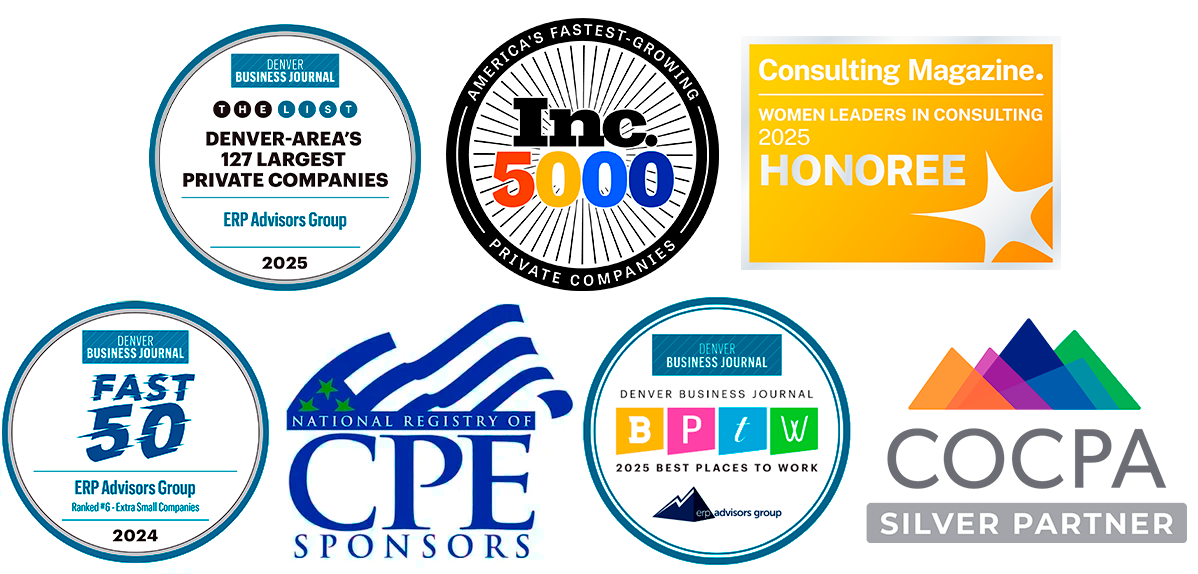A recent interview with Shawn Windle, Founder and Managing Principal of ERP Advisors Group, and TechTarget’s Jim O’Donnell revealed an optimistic future for Epicor.
Windle returned from Epicor Insights 2021 with a renewed perspective of the ERP provider. “They are definitely committed to the existing customer base,” he said. “They have a good opportunity to be top performers in the SMB market.”
O’Donnell said about Epicor, “They are intent on making sure that the customers will have the sort of implementation that best suits them.”
Windle noted that Epicor has strong financial backing and is attracting top talent to a highly motivated team. The company has recently invested in R&D, making a competitive play in the mid-market space.
Epicor ERP officially became known as Kinetic on June 10, 2021, improving upon current offerings in user experience, eCommerce, document security, EDI integration, spreadsheet integration, and regulatory standard support.
Epicor introduced EVA (Epicor Virtual Assistant) to assist users in routine tasks, Furthering its offerings even more, Epicor implemented a no-code solution for detailed personalization and customization of Kinetic software through the Application Studio.
Narrator: We recently returned from attending Epicor Insights 2021 in Las Vegas and in the interview you're about to hear your ERP Advisors Group Founder and Managing Principal Shawn Windle offered his perspective on Epicor's future outlook. Please enjoy this bonus episode of The ERP Advisor.
Shawn Windle: Epicor is interesting in that they do have an influencers track for folks like us — for people that are working with clients trying to help them resolve selections, and what do they need for ERP.
And it was great. It was actually really helpful because sometimes at conferences I have to sort of go around and try to grab people between meetings or whatever, but that track was set up specifically to give us information so that we could use it in selections that we were doing that day. There were a couple selections happening where I was like, oh wow, this is applicable so it was good, super helpful.
And I think the difference — I actually talked to quite a few executives at Epicor in a social setting as well as in sort of a presentation setting, and that was good to sort of — you see what people think after a couple glasses of wine versus what they say when they're supposed to say the right things. Truly, and I was hearing the same things that the team at Epicor is very committed to growth and they have a ton of ERP and enterprise software experience.
So, we can look at the leadership team of an organization and understand where they're going to go based off people’s experiences. For instance, the CFO at Epicor, if you look at his background, it's very acquisition driven, so he spent a lot of time acquiring businesses. What do we think Epicor is going to do going forward? It makes a lot of sense that they would do that on top of product development.
So, that was good, but the other good thing too was even being on the floor at the exhibit hall for Epicor and talking to different booths.
So, when you go to these sessions, it's a big conference hall — convention hall basically — and they'll have different booths and things set up for folks and there was a booth set up for one of their more legacy products called Eclipse and I had the best conversation of the conference with this guy who had been working with Eclipse for 20 plus years. His career all in on this product and had even worked with other organizations prior to it being acquired by Epicor.
But it was great to listen to him and what his experiences were with very specific industry distribution. But even very specific kinds of distributors and how his product met those needs and I really got the sense that it is a big differentiator for Epicor, specifically, that they have got really experienced people with their current products.
Some of the other apps will talk about they have very experienced people, but not with that particular product because they're relatively new, whereas with Epicor these products have been around for a long time.
So, to get back to what we're talking about here, the message from the folks that are in the trenches building the apps, implementing the apps all the way to the very top was very in alignment with quality product, getting solutions to the market that are not just vertical-focused, but micro-vertical-focused, which is great for clients.
And then just overall, a lot of faith, a lot of confidence in the product that frankly as an advisory firm we didn't have as much, and so it was super good to be on that track because we could see certainly there was sort of marketing and some public relations factor to it all for sure, but this is all I've done for like 25 years. I can sort of cut through just what's the surface — the social veneer I’ll call it — to get down to what's really happening. And it's great to hear that a lot of good things were happening, including even talking to some customers that were implementing these products.
The company — their financial performance is very healthy now. They are a private organization, so we don't see their financials. But across the board leadership team was clear they're making money, and we're certainly seeing that in the industry right now that a lot of enterprise software vendors are doing very well.
But what I'm observing and sort of reading behind the lines — between the lines — so to speak and sort of behind closed doors, is that Epicor is doing very well. I think a lot of free cash flow. The CFO sort of alluded to that fact, too.
So, that’s great. Because you have an independent software vendor called Epicor which is a certain size — we know what their valuation is which is about $4 billion. So, we can sort of interpolate their recurring revenue run rates based off of multipliers and kind of work our way back to how much revenue they're actually making in a year and that's helpful. And then we can look at moving towards more of a cloud.
So, this is important that, as Epicor goes from on-prem to cloud, it's actually more profitable for the software vendor to do that, because they're getting paid every year.
There’s a curve that we have done so many times — it's usually about year three where if you pay on-prem or for licensed software, there's a big chunk upfront — you pay more in year one than you would for a subscription, which is just the annual. And then overtime — year two — you have the software license is gone and then you would pay just support for an on-prem deployment, whereas cloud it's the same amount.
So, if you look at the aggregate dollars, the curves cross in about year three or year four, so over time Epicor is going to be making more money from their customers and really should because the value added each year is significant if they're putting out upgrades and releases and support and everything.
So, that was probably the biggest indicator was they got a lot of cash, and that's good because they're in the second thing I would say is I think a good indicator to share with you all — there's a couple things I'm not going to share on this interview with the general public, very honestly. You’ll have to engage us in a selection to get to those.
But something very important though that that I saw was that — and I believe this — that even though Epicor is owned by a large private equity firm, that private equity firm isn't really experienced.
Now, let me let me rephrase this a little bit. That private equity firm doesn't have that many technology portfolio companies. They have a lot of other kinds of organizations you can look online and see those for yourself.
But the interesting thing is if you look across their portfolio — and I'm not an investment banker and I won't even pretend to be an investment banker, but I will be somebody with my clients, with all of our clients throughout our organization, that I'm not going to put a client on an app that's going to change in the next year — we should have known that.
I've done that before, frankly, and it was the worst feeling in the world. How could you put me on this product when SAP bought Fourth Shift Edition for SAP Business One and like literally SAP bought it and said we're just not supporting this anymore, it's going away. And the client’s looking at me like you told me to run my business on this.
So, it just takes a couple of those times to be like, wow I should have seen that freight train coming.
So, with that background, I do think Epicor as an indicator, I think that the holding company — the organization that runs on the private equity — is going to hold on to them for a bit because they're doing great with cash flow. They got a great leadership team, they've got a really good customer base, and they have good products that are coming to market, they're making some interesting and exciting acquisitions.
So, you sort of put all of those indicators together, and it's like they're going to make a run for it, and it's going to be a hard, it's going to be a fast run, and the executive team is going to make a lot of money from what they do over the next couple of years and they're all in on it.
And I love that. Because we're all in, right? We're not going to talk to our clients and just, you know, namby, pamby, hey, here's this app, go get it. No. We know that these organizations — our clients — want to be on these apps for another ten years.
So, we've had some concerns about that in the past, and I think those concerns are going down. Now, we need to do a couple deals and get things going. We've already invited them to two since the conference, so I'm really excited to see how those flesh out.
I think for Epicor for the future the most what I saw for myself at the conference was definitely growth. But probably the biggest thing is not just growth of the install base, moving to Kinetic or to any newer products that are coming on, but for the new clients, especially in manufacturing, that I think they're going to start to attract that they couldn't before. There wasn't a really clear cloud strategy that made a lot of sense talking to the competitors like Infor, Acumatica, definitely NetSuite.
But those products don't have the tradition and the legacy — a good legacy of really killing it for engineer-to-order manufacturers, which is a hard set of requirements to get. You have engineering designs and going through lots of revisions with bill of materials and all kinds of item master stuff to then get a configured product that then goes to manufacturing to build it and QC it and ship it and bill it and all that stuff.
That's like the whole life cycle, right there. That was amazing. That sounds easy, but it's really not because for some operations we have to send — like we have a client that makes cell phone towers —the poles, telephone poles, basically telephone tower equipment — and they will send some of those towers out for outside work and sometimes they do, and sometimes they don't, so that changes the whole cost structure of the bill of operations within Epicor.
And Epicor has the flexibility to support those kinds of functions and a lot of apps don't. They just haven't gotten that deep in that those kinds of functions. So, I really think we're going to see a lot of growth from that organization.
And I love it because in the market today we have the large tier ones that do well in that area.
The tier twos and that's like SAP and even the Microsoft Dynamics 365 Finance and Operations has a lot of experience there, too. But the deployments are heavy, they're heavy deployments. Some of our midsized clients, even clients that are sub $100 million, don't need that — so where do they go to?
There's a little bit of compromise, right? Either you go to an old legacy app that you're not sure what their cloud strategy is going to be and where they're going to be in five years or if they’re going to get bought. Or do you go with a more prevalent cloud provider that doesn't have that depth of manufacturing capability yet?
So, it's sort of like, that sucks. I hate to say it that way. I would rather have an app that's optimized for midsized company. TSO’s low, great cloud strategy so we don't have to worry about backups and disaster recovery and cyber security risks — that's another one — and the functionality is super good for that particular area.
And that's probably what I'm the most excited about is that I did see that for myself, like hey, this is very real that Epicor is going to meet then and can meet this niche for a while.
So, one thing that folks aren't talking about related to Epicor that I see is an alignment. All these factors that make up a software selection optimal solution where this is all I've done for many years, and I have a lot of clients that rely on us — ultimately me — to give them an answer to what is the right app, and we won't give it to them.
We will make them find it, but meanwhile we're really doing all the homework to ensure they end up at the place we think they should. That's really the honest to gosh truth about our selections.
But I think the thing that people aren't talking about with Epicor is there's a lot of financial benefit that I think is going to be coming from that organization. Certainly the executive team is going to realize that where there's opportunities that different businesspeople have based on the amount of risk that they're taking on.
The more risk, the more reward is usually how it should work. Unless things are aberrated, but that's a different story for another time.
I think that Epicor — the partners who've been in the Epicor channel for a while, I think the executives, the partner channel managers, and the professional services people I think are going to do really well. I think really well financially.
And that's an interesting thing because you think about Salesforce or NetSuite Oracle or some of these more cloud-driven, more “modern organizations” that hey, as an individual I can go make a lot of money there. And so that will tend to attract the top talent.
I don't think people are talking about that with Epicor that I think that leadership team is attracting a certain amount of person that has a lot of ERP experience. And there's a commitment that I think that kind of person that they're attracting now is really committed to executing a strategy that's going to work for right now in the market.
And it's something probably only I would see even over a private equity or investment bank or whoever you know. I see it more from the delivery, like from the promise to actually what gets provided to the manufacturing floor people like, can they really use this product or not? I just think the economics of Epicor make a lot of sense.
Narrator: ERP Advisors Group is one of the country's top independent enterprise software consulting firms, advising mid to large sized businesses on selecting and implementing business applications including ERP, CRM, HCM, business intelligence, and other enterprise applications which equate to millions of dollars in software deals each year across many industries. This has been The ERP Advisor.





